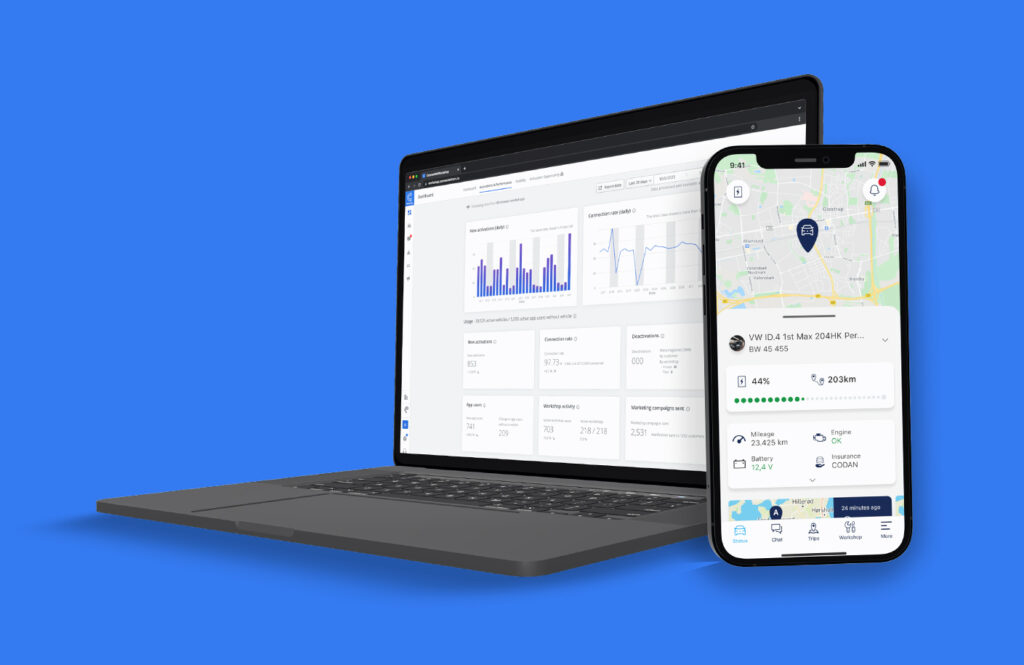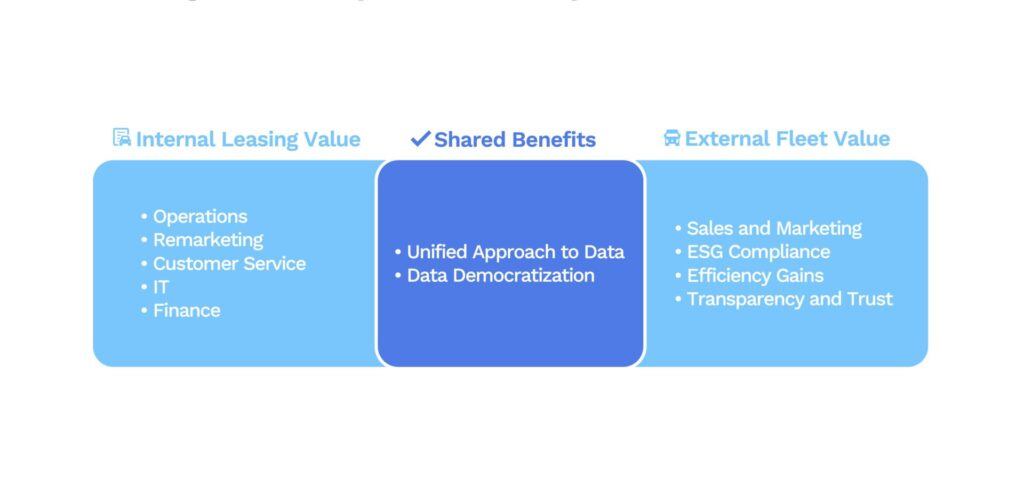Facing heightened scrutiny, automotive leasing firms need to manage the delicate balance between maintaining efficiency and minimizing complexity while also implementing ESG reporting requirements. On the spectrum from empty greenwashing claims to verifiable carbon calculations, leasing companies must find a method that ensures credibility without sacrificing practicality. This requires integrating advanced data analytics and telematics to accurately measure and report on actual emissions, providing transparency that aligns with both investor expectations and regulatory standards.
Understanding greenwashing in automotive leasing
A vast majority of publicly traded companies are now producing ESG reports, but it’s crucial to scrutinize whether these documents truly meet regulatory standards and garner trust. Many leasing firms are teetering on the edge of greenwashing; their environmental claims, especially regarding CO2 emissions, are often unverifiable and unsubstantial. Commonly, these companies depend on inadequate methods like having fleet drivers manually report mileage—a practice prone to errors and inconsistencies. This compromises data credibility and risks accusations of greenwashing as it falls short of the stringent transparency and accuracy required by contemporary environmental regulations.

The reliance on outdated practices poses significant risks. Consequently, without robust data collection and verification processes, these companies are perceived as merely paying lip service to sustainability. Moreover, this threatens their reputational integrity and their ability to comply with stringent regulations that require precise CO2 emission accounting. Therefore, to move beyond greenwashing, leasing companies must embrace more accurate and transparent data collection methods. These methods should withstand scrutiny and accurately reflect their environmental impact, especially in CO2 emissions reporting.
The dire risks of greenwashing claims
Accurate and verifiable data is essential for substantiating environmental claims in the automotive leasing industry, especially with new regulations tightening transparency requirements. The Corporate Sustainability Reporting Directive (CSRD), effective from 2025, and the Carbon Border Adjustment Mechanism (CBAM), coming into force in 2026, will impose stringent standards on companies within and outside the EU. These regulations aim to combat greenwashing by enforcing rigorous accountability, requiring leasing companies to provide robust evidence of their environmental impact. Additionally, the forthcoming Green Claims Directive from the EU, specifically targeting misleading environmental claims, will introduce further disciplinary measures for companies unable to support their sustainability statements with concrete data.
In this context, verifiable data is crucial for both compliance and credibility. Accurate, consistent data allows leasing companies to substantiate their environmental impact claims, thereby gaining trust from regulators, investors, and customers. This integrity in reporting is essential for avoiding greenwashing accusations and establishing a genuine commitment to sustainability. As the industry faces increasing regulatory scrutiny and competitive pressure, the ability to produce reliable ESG data will be key to differentiating companies, enhancing their reputation, and securing long-term stakeholder confidence.
The rewards of verifiable initiatives
The benefits of adopting verifiable data initiatives in automotive leasing are multifold. First, automating reporting processes enhances operational efficiency by streamlining data collection and management. Advanced technologies simplify the complexities of regulatory reporting, reducing manual input errors and ensuring timely, accurate compliance with stringent regulations. This operational efficiency reduces costs, optimizes fleet performance, and minimizes environmental impact.
Second, robust data enhances a company’s credibility and positions it as a confident leader in the industry. By providing clear, verifiable evidence of their environmental efforts, leasing companies bolster their claims and build trust with investors, customers, and stakeholders. This transparency helps to differentiate them in a competitive market, attracting environmentally conscious investment and customer loyalty, while also reinforcing their reputation as genuine sustainability leaders.

Third, embracing verifiable data initiatives fosters long-term resilience and adaptability. As regulatory landscapes evolve and consumer expectations shift towards greater environmental accountability, companies with robust data reporting systems will be better equipped to meet new challenges. This proactive approach ensures continued compliance with emerging regulations and demonstrates a forward-thinking commitment to sustainability, enabling leasing companies to remain competitive and resilient in a rapidly changing market.
Telematics solutions for data integrity
Technological solutions like telematics and advanced data analytics are key to ensuring data integrity and avoiding greenwashing in the automotive leasing industry. Telematics systems provide real-time, accurate data on vehicle usage and carbon emissions, far surpassing the reliability of manual reporting. By automating data collection, telematics reduces errors and ensures compliance with regulations like CSRD and CBAM, while also enabling proactive fleet management and emission reductions.
Enhancing decision-making through data analytics
Advanced data analytics take this a step further by analyzing the vast amounts of data collected, identifying trends, and providing actionable insights. These tools help leasing companies make informed decisions that improve efficiency, sustainability, and cost-effectiveness. By integrating telematics and analytics into their operations, leasing companies can enhance data accuracy, support regulatory compliance, and strengthen their sustainability initiatives, all while avoiding the pitfalls of greenwashing.

Beyond ensuring compliance and accuracy, these technologies provide strategic benefits that give leasing companies and their commercial customers a competitive edge. By integrating telematics and analytics, these companies can offer greater transparency, building customer trust and reinforcing their reputation as sustainability leaders. Additionally, the precise, real-time data allows for optimized fleet performance, reduced operational costs, and increased profitability. Embracing these solutions helps companies meet regulatory demands, enhance their market position, and actively contribute to global sustainability efforts.
Guarding against greenwashing claims with Connected Cars
The risk of greenwashing grows when companies use outdated methods to track fleet performance and emissions. To combat this, companies can implement telematics solutions that utilize data from multiple sources, such as hardware devices connected to the OBD-II socket or vehicle APIs. These sources deliver real-time, accurate insights, ensuring environmental claims are backed by verifiable evidence. Adopting this data-driven approach is vital for complying with regulations, enhancing stakeholder trust, and staying competitive. It also increases transparency and bolsters the credibility of sustainability efforts.
Empowering sustainability with Connected Cars solutions
This is where Connected Cars steps in with its innovative platforms, ConnectedLeasing and ConnectedFleet. These tools are specifically designed to empower leasing companies with the technology needed to capture and manage precise data on vehicle usage and carbon emissions. By integrating these advanced solutions into their operations, companies can move beyond superficial green claims and embrace a more transparent, accountable approach to sustainability. The benefits are manifold: enhanced operational efficiency, optimized fleet management, and a stronger market position, all while safeguarding against the risks of greenwashing. Through the adoption of ConnectedLeasing and ConnectedFleet, leasing companies can confidently lead the charge towards a more sustainable and credible future.

Incorporating ConnectedLeasing and ConnectedFleet into daily operations enhances data accuracy and enables leasing companies to proactively manage their environmental impact, helping to avoid greenwashing. The real-time data provided by these platforms allows for more informed decision-making, helping companies optimize vehicle maintenance schedules, reduce emissions, and increase fleet utilization. This proactive approach translates to significant cost savings and operational efficiencies, reinforcing a company’s commitment to sustainability. By leveraging these advanced tools, leasing companies and their commercial customers can stay ahead of regulatory changes, meet the growing expectations of eco-conscious consumers, and ultimately strengthen their reputation as leaders in sustainable fleet management.
Balancing demands for data accuracy and operational efficiency
The introduction of new ESG reporting methods can seem like an intimidating challenge to leasing companies. Caught between the risk of greenwashing and the need for genuine environmental reporting and transparency, this scenario demands robust data collection and management practices that ensure compliance while supporting operational needs. Advanced data analytics and telematics solutions enhance internal operations across departments such as IT, finance, and customer service. These technologies optimize financial management and improve the accuracy of compliance reporting, enabling leasing companies to maintain high operational efficiency.

A unified approach to data and data democratization ensures that insights are accessible throughout the leasing organization, promoting an environment of transparency and collective responsibility. Simultaneously, these technologies enhance the value provided to customers’ fleets by improving transparency, boosting efficiency, and ensuring compliance with environmental standards. Consequently, adopting ConnectedLeasing and ConnectedFleet mitigates the risks of greenwashing claims and introduces impactful environmental practices, while also generating value both internally and externally for leasing companies and their commercial customers.
Conclusion
With intensifying scrutiny in the automotive leasing industry, leasing companies face significant challenges in balancing efficiency with genuine sustainability practices. Integrating advanced data analytics and telematics is crucial, enabling companies to accurately measure and report actual emissions. This level of accuracy and transparency meets investor expectations and strict regulatory standards, enhances operational efficiency, and reinforces a company’s commitment to true environmental stewardship, setting them apart in a competitive market.
The path from compliance to industry leadership in sustainability is marked by the strategic implementation of verifiable data initiatives that combat greenwashing. These initiatives, which streamline reporting processes and enhance data integrity through platforms like ConnectedLeasing and ConnectedFleet, transform operational models. They reduce the complexities of ESG and CO2 reporting and help companies anticipate regulatory changes, ensuring they lead in the global shift towards sustainability. As automotive leasing firms continue to leverage these technologies, they enhance their market viability and stakeholder trust, securing a resilient and reputable future in an environmentally conscious business environment.






